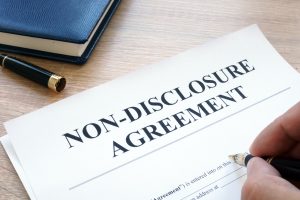
Is it possible that signing a non-disclosure agreement could preclude you from suing your employer for sexual harassment? Employers are permitted to use agreements such as non-disclosure agreements (NDAs) to limit the legal claims that their employees may bring against them. However, there are some rights that just cannot be waived, and companies that try to make agreements with you that significantly restrict your rights face the risk of having those agreements declared invalid and unenforceable.
In addition to this, companies run the risk of attracting the attention of state and federal agencies, which can ultimately result in the invalidation of additional employee agreements. This may result in sanctions being imposed by the administration. Keep reading to learn more and then contact PLBH at (800) 435-7542 if you have a sexual harassment case and need help from a workplace harassment employer today.
The Harvey Weinstein case
An inquiry into the cases involving Harvey Weinstein revealed that many of the accusers had signed nondisclosure agreements (NDAs) and confidential settlements that prevented the tale from becoming public. However, employees are unable to renounce future claims based on criminal action that occurs after the signing of an NDA, and courts often do not enforce agreements of this nature.
You are protected from sexual harassment even if there is a non-disclosure agreement or waiver in place
It is not easy to come out with allegations of sexual harassment in the workplace, even if you have been a victim of such behavior. It is an experience that is challenging, terrifying, and stressful all rolled into one.
Your first step should be to make it clear to the person who is harassing you that the actions they are engaging in are not acceptable. If that does not help, you need to discuss it with every relevant person you can until the problem is addressed. This includes your supervisor, the harasser’s supervisor, HR, and anyone else who may have a position of authority that can help. If your supervisor is the one harassing you, you should complain to the supervisor of your supervisor.
Be sure that as time goes on, you are gathering evidence of the harassment that has been occurring. If you do end up needing to take legal action, your statement to higher-ups, any digital evidence, and even any complaints your coworkers might have about the harasser might all be useful. In addition, despite how challenging it may be, you should not be frightened of retribution in the workplace because any sort of retaliation can serve as a solid basis for a lawsuit.
Last but not least, if you experience any wrongs at the hands of a harassing coworker or supervisor, consulting with an employment attorney can assist you in getting a head start on the process of making things right. Contact PLBH at (800) 435-7542 now for a legal consultation.
